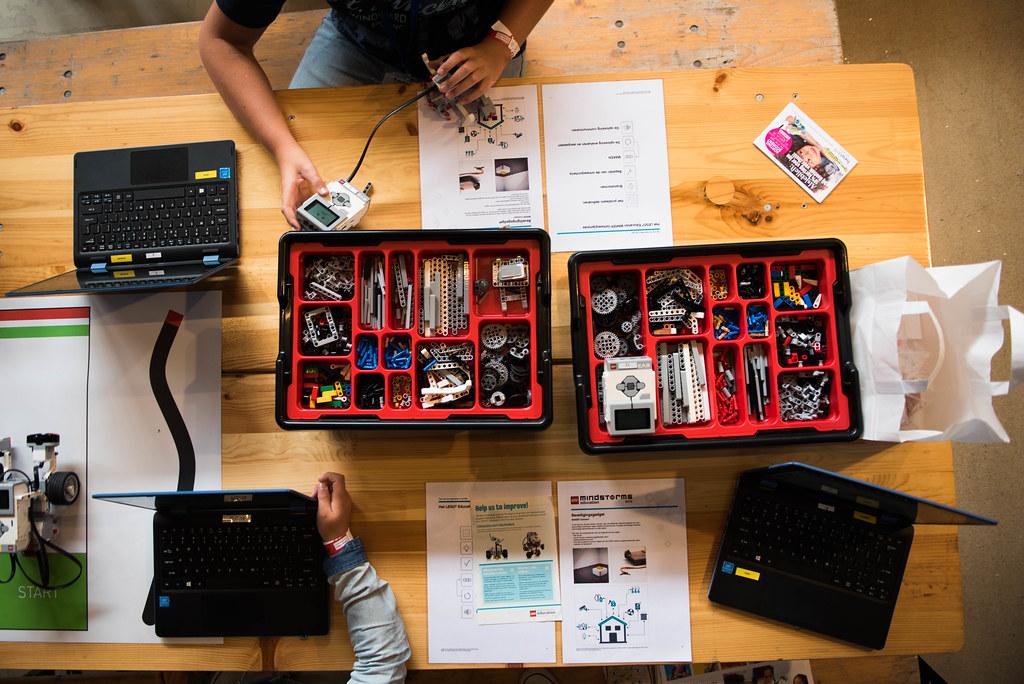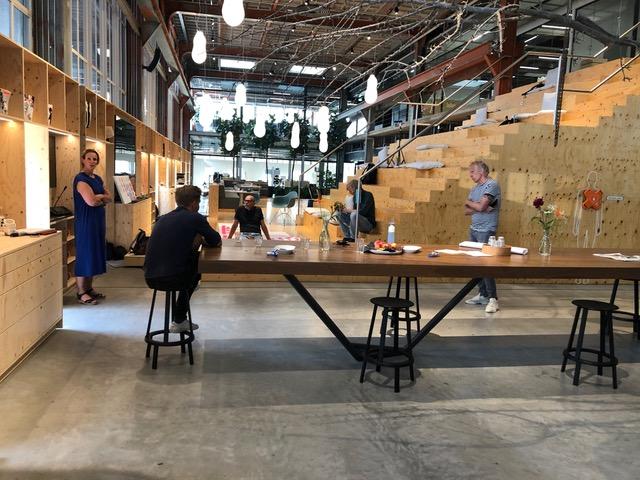Tijdens de eerste lockdown schakelde de wereldwijde gemeenschap van makers in Fab Labs en maker spaces snel om: via open-source ontwerp konden hulpmiddelen voor de medische industrie op lokale schaal geproduceerd worden, volgens de manier waarop de makers al gewend waren samen te werken. Ook Waags Fab Lab was hier nauw bij betrokken, onder meer door gelaatsschermen te produceren voor de zorg en contactberoepen. Via het wereldwijde platform Careables werkten we tevens mee aan het open-source delen van zorgoplossingen, die op lokaal gebied met simpele materialen geproduceerd konden worden.
Hierover verscheen afgelopen week een artikel in het wetenschappelijk tijdschrift 'Frontiers of Sociology', onder de titel 'Covid-19 Response From Global Makers: The Careables Cases of Global Design and Local Production'. Het werd geschreven door de Careables-partners, waaronder Paulien Melis namens Waag.
Lees de abstract:
'Makerspaces — informal shared spaces that offer access to technologies, resources and a community of peer learners for making — across the globe initiated a rapid response to the lack of medical hardware supplies during the global pandemic outbreak in early 2020 caused by the Corona virus (COVID-19). As our health systems faced unexperienced pressure, being close to collapsing in some countries, and global supply chains failing to react immediately, makers started to prototype, locally produce and globally share designs of Open Source healthcare products, such as face shields and other medical supplies. Local collaboration with hospitals and healthcare professionals were established. These bottom-up initiatives from maker networks across the globe are showing us how responsible innovation is happening outside the constraints of profit-driven large industries. In this qualitative study we present five cases from a global network of makers that contributed to the production of personal protective equipment (PPE) and healthcare-related products. We draw our cases from the experiences made in Careables, a mixed community of people and organizations committed to the co-design and making of open, personalized healthcare for everyone. With the presented cases we reflect on the potential implications for post-pandemic local production of healthcare products and analyze them from a social innovation perspective. These global experiences are valuable indications of transformative innovations that can reduce dependencies from international supply chains and mainstream mass production.'


